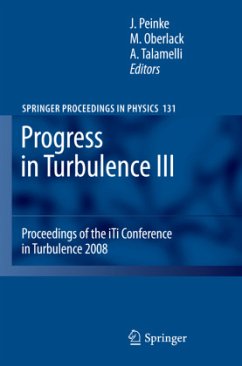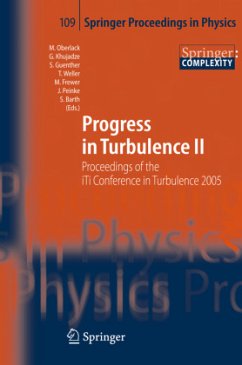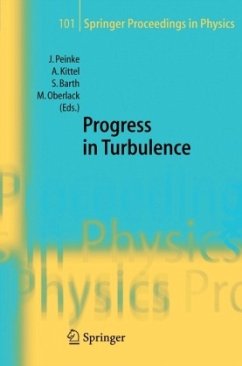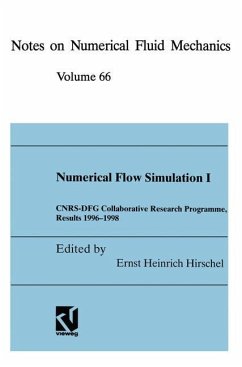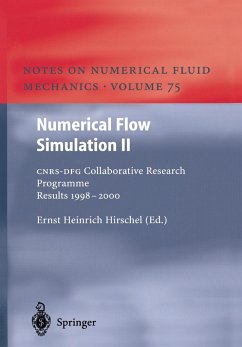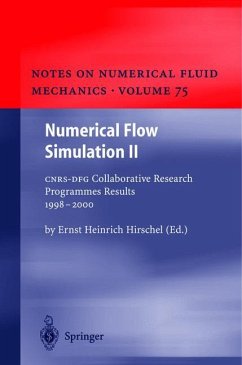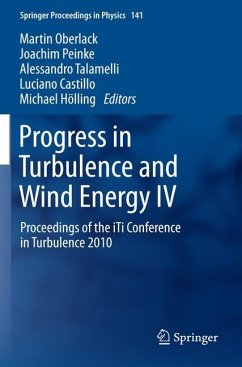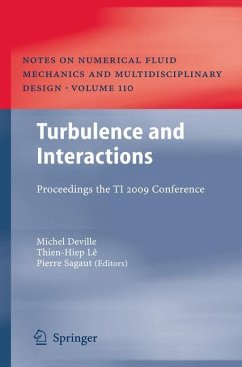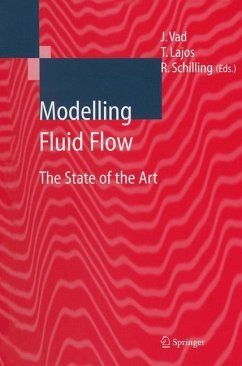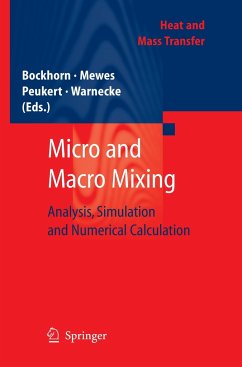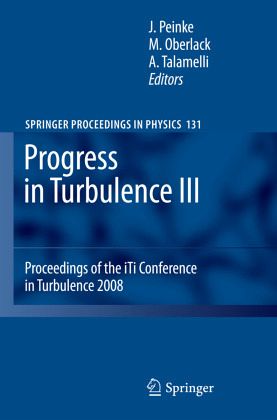
Progress in Turbulence III
Proceedings of the iTi Conference in Turbulence 2008
Herausgegeben: Peinke, Joachim; Oberlack, Martin

PAYBACK Punkte
76 °P sammeln!
This third issue on "progress in turbulence" is based on the third ITI conference (ITI interdisciplinary turbulence initiative), which took place in Bertinoro, North Italy. Researchers from the engineering and physical sciences gathered to present latest results on the rather notorious difficult and essentially unsolved problem of turbulence. This challenge is driving us in doing basic as well as applied research. Clear progress can be seen from these contributions in different aspects. New - phisticated methods achieve more and more insights into the underlying compl- ity of turbulence. The i...
This third issue on "progress in turbulence" is based on the third ITI conference (ITI interdisciplinary turbulence initiative), which took place in Bertinoro, North Italy. Researchers from the engineering and physical sciences gathered to present latest results on the rather notorious difficult and essentially unsolved problem of turbulence. This challenge is driving us in doing basic as well as applied research. Clear progress can be seen from these contributions in different aspects. New - phisticated methods achieve more and more insights into the underlying compl- ity of turbulence. The increasing power of computational methods allows studying flows in more details. Increasing demands of high precision large turbulence - periments become aware. In further applications turbulence seem to play a central issue. As such a new field this time the impact of turbulence on the wind energy conversion process has been chosen. Beside all progress our ability to numerically calculate high Reynolds number turbulent flows from Navier-Stokes equations at high precision, say the drag co- ficient of an airfoil below one percent, is rather limited, not to speak of our lack of knowledge to compute this analytically from first principles. This is rather - markable since the fundamental equations of fluid flow, the Navier-Stokes eq- tions, have been known for more than 150 years.



